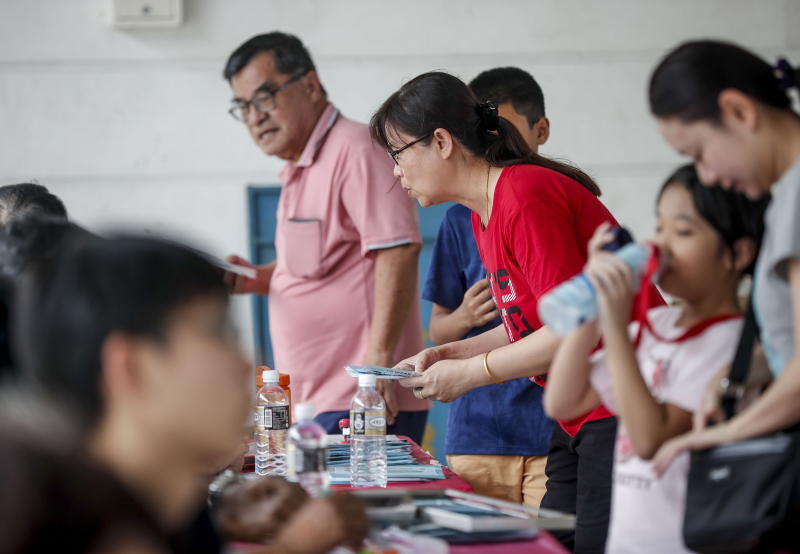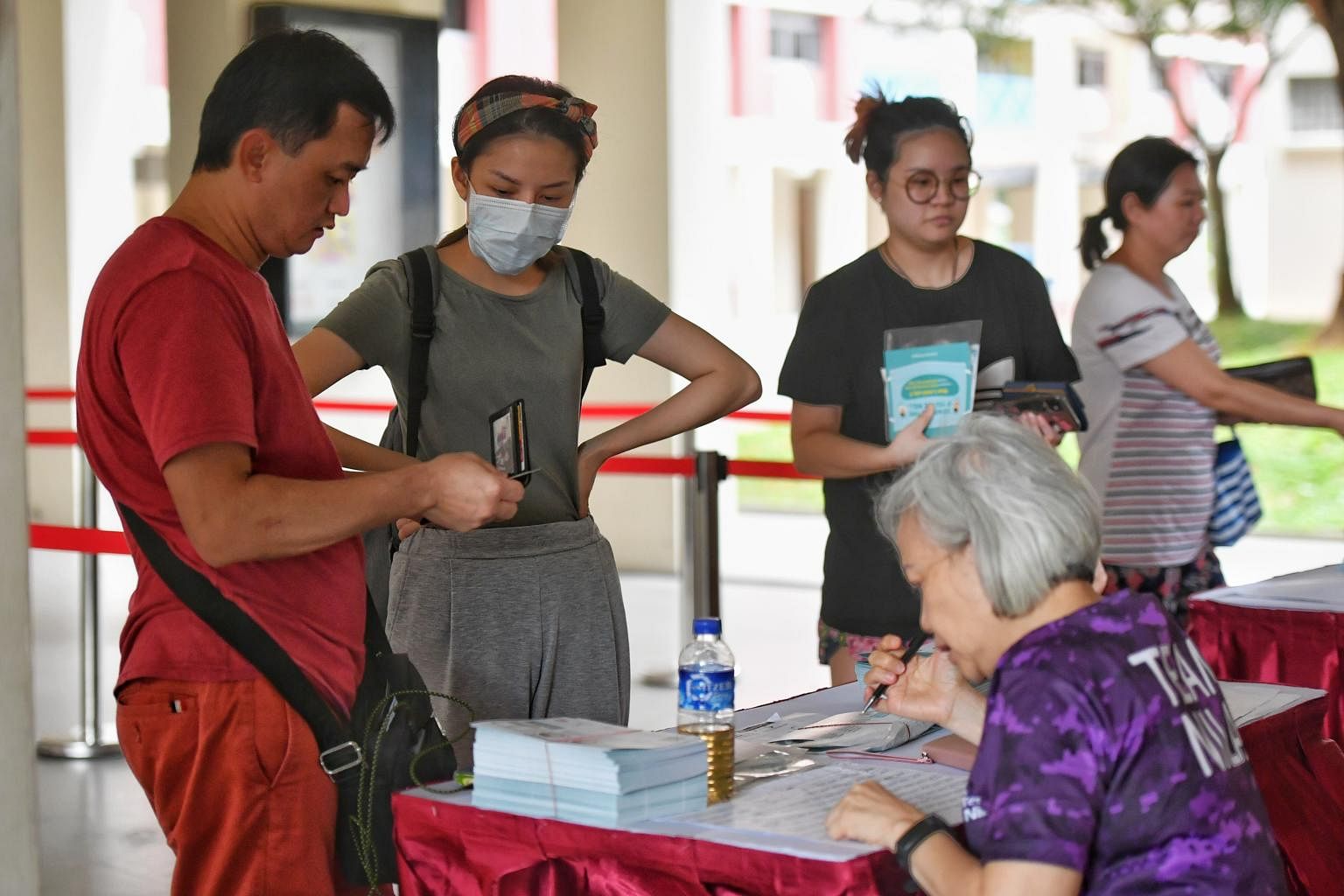Coronavirus: No new confirmed cases in Singapore for a second day
Sign up now: Get ST's newsletters delivered to your inbox

Residents collect surgical masks at a mask distribution point in Singapore, Feb 1, 2020.
PHOTO: EPA-EFE
SINGAPORE - There were no new cases of the coronavirus infection here for a second day, according to an update by the Ministry of Health (MOH) on Monday evening (Feb 3).
This means the total number of confirmed cases in Singapore remains at 18, including two Singaporeans. There were no new cases reported on Sunday.
The MOH reiterated that there is currently no evidence of community spread of the virus in Singapore. The virus, known as 2019-nCoV, first emerged in the Chinese city of Wuhan in December last year.
None of the 18 previously announced cases is critically ill. All of them remain in stable condition, and most are improving, the ministry added.
As of noon on Monday, 262 of the suspected cases have tested negative for the virus. Test results for the remaining 32 cases are pending. Contact tracing for the confirmed cases is being carried out.
The MOH said that once a confirmed case has been identified, it will closely monitor all close contacts. As a precautionary measure, they will be quarantined for 14 days from their last exposure to the patient.
In addition, all other identified contacts who have a low risk of being infected will be under active surveillance, and will be contacted daily to monitor the status of their health.
The ministry has identified 256 close contacts as of noon on Monday, with 187 still in Singapore, of which 186 have been contacted and are being quarantined or isolated.
Efforts are being made to contact the remaining close contact.
The authorities earlier said that two Singaporean women evacuated from Wuhan had been infected with the coronavirus.
The women, both aged 47, were asymptomatic when they boarded the specially arranged Scoot flight TR121 that carried 92 Singaporeans from the Chinese city, which is on lockdown. They are currently admitted at the National Centre for Infectious Diseases (NCID), along with the majority of the other confirmed infected cases.
The coronavirus has so far proven to be more infectious than Sars.
As of Monday, the outbreak had sickened more than 17,000 and killed more than 360, with the Philippines reporting the first death caused by the virus outside of China. The deceased was a 44-year-old Wuhan resident who travelled from China to the Philippines.
Most of the deaths occurred in central Hubei province, the epicentre of the outbreak.
In the wake of the outbreak, a growing number of countries, including Italy, the United States, Australia, Singapore, Japan and Russia, have put in place travel restrictions. Germany, France and the US have evacuated citizens from China.
Several major airlines have also halted flights to and from China, deepening concerns of a widespread economic slowdown.
In Singapore, measures to combat the outbreak include mask distribution at residents' committee centres and community centres islandwide, which began last Saturday.
The Government announced last Thursday that all 1.3 million households in Singapore would be given a pack of four masks each amid reports of shops running out of stocks.

HEALTH ADVISORY
The MOH on Monday continued to advise Singaporeans to defer all travel to Hubei province and all non-essential travel to mainland China.
All travellers should monitor their health closely for two weeks after returning to Singapore and seek medical attention promptly if they feel unwell.
Travellers should inform their doctors where they have travelled. If they have a fever or respiratory symptoms - such as a cough or shortness of breath - they should wear a mask and call the clinic ahead of the visit.
Members of the public should take precautions such as avoiding contact with live animals, including poultry and birds, and avoid eating raw and undercooked meat.
They should also avoid close contact with people who are unwell or showing symptoms of illness.
The public can observe good personal hygiene too, with frequent hand washing using soap, such as before handling food or eating, after going to toilet, or when hands are dirtied after coughing or sneezing.
People should a wear a mask if they have respiratory symptoms such as a cough or shortness of breath.
When sneezing or coughing, they should cover their mouths with a tissue paper and throw it in the rubbish bin immediately.


